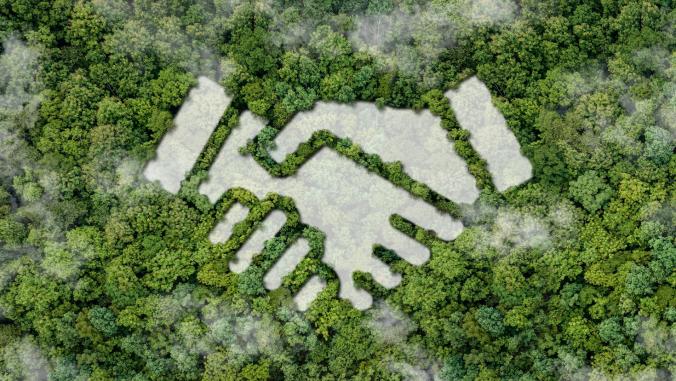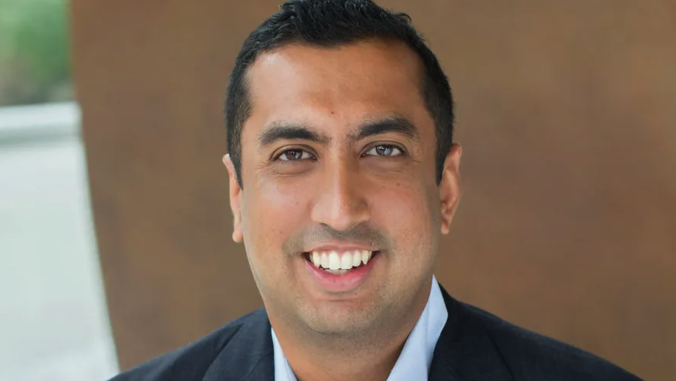Dear Shannon: What top change leadership capabilities are in demand?
More than a list of accomplishments on a CV, strong candidates embody display these eight skills of disruptive sustainability.

Dear Shannon,
I'm a careers counselor at a top 20 MBA program in the U.S. In the last few months we've seen top management in leading brands start to ask more directly for students with experience in divestment from fossil fuels and leadership on sustainability. In order to help our students and alums develop and sell a compelling and relevant skillset, I've been investigating change management and competencies for leadership. With you being a leader on the ground in this space, I'm curious to know what you think are the criteria that matter most.
Mark, San Francisco
Dear Mark,
I'm excited to hear that your university is taking this issue so seriously — it gives me hope for the future. More and more educational institutions are reflecting on how to meet the unique challenges of the 21st century, and those that are prepared to move now are the ones that will set the agenda for the coming decades. A university's influence stretches further than the boundaries of its campus; the legacy it leaves on the world is as diverse, far-reaching and influential as its alumni network. This makes universities key centers for sustainability leadership, with important responsibilities.
Companies are looking to recruit graduates who can be leaders ready to bring the organization on a journey from unsustainable to sustainable. You need students and graduates with a rare combination of expertise, integrity and soft skills who can bring diverse stakeholders together and hold firm with a vision of a viable, livable and desirable future during times of uncertainty.
A few months ago, I attended a workshop that examined the very issues you're talking about: integrating sustainability into an institution's core mission and transforming organizational identity, culture and processes to enable change. It was delivered by Leith Sharp, director of executive education for sustainability leadership at Harvard University’s Center for Health and the Global Environment. She has 20 years' experience greening universities all over the world and is the one-woman sustainability machine behind Harvard University's green transformation.
Sharp suggests that what's really needed is “disruptive sustainability”: a kind of leadership that brings about a change of direction, away from eco-efficiency and “doing less bad” of old-school sustainability approaches, and towards what she calls “eco-effectiveness.”
But how? A good place to start is to look at the top capabilities of change leaders. A 2012 report from the University of Western Sydney (PDF) examined the capabilities that count in education for sustainability and found that the top ones have much in common with the attributes of change-capable and resilient organizations and societies, as well as the values of the world's major religions (which I thought was interesting). They are as follows:
1. Having energy, passion and enthusiasm
This is all about commitment and the ability to keep going when times get tough, because they will. Look for candidates who have bounced back from career failures, who have extensive networks to draw inspiration from, and who are realistic about the challenges that a role like this will involve.
2. Being willing to give credit to others
High interpersonal and emotional intelligence are crucial to successful sustainability leadership and come into special focus when credit is due. Seek out candidates with a strong history of leading multi-functional teams and a track record of celebrating others' successes.
3. Enthusiasm and working productively with diversity
A sustainability leader needs to be able to affect change in areas that they aren't expert in, which means inspiring and working productively with people in all branches of the organization. Listening to conflicting views and taking an interest in others' experiences are important traits that any candidate will need to be able to demonstrate.
4. Being transparent and honest in dealings with others
I can't stress how important this is. Integrity in the workplace is especially crucial for sustainability leaders — if you're not transparent and honest, how will anyone trust you? Ensure that candidates have good character by getting them prepared for companies to triple-check references from previous work employers or from professors who have mentored them.
5. Thinking laterally and creatively
This is a given. The ability to be creative and find a way around seemingly unconquerable challenges will be a day-to-day requirement for anyone companies are looking to take on. Look for a resilient and strategic problem-solver who doesn't do “can't do.”
6. Being true to one’s values and ethics
This links to No. 4. The ability to be decisive, stick to principles and not compromise are important traits for any sustainability professional. Look for candidates with personal magnetism, strong character and a history of staying true to their values in challenging circumstances.
7. Listening to different views before making a decision
Empathy and active listening skills are crucial for sustainability professionals who want to create change. While being true to your values is important, it's also necessary to bring others — who may not share your view — along on the journey. It's a difficult balance to strike, as an overly authoritarian leadership style can inhibit the kind of collaboration that must be fostered to make progress.
8. Understanding personal strengths and limitations
This is about knowing yourself, knowing what you can do and, more important, knowing what you can't do. Many sustainability initiatives fail because the leader's ambition was too high or the project too complex for the organization to handle at that time. The ability to take a realistic view of the situation —whether in terms of energy, time, capacity or finance — is a very important skill.
I hope my comments help you to shape and define your university’s future leaders and alums for this challenging change landscape. If you'd like some bespoke one-on-one advice on creating a recruitment strategy for sustainability or in preparing your students for the competitive impact jobs market, please get in touch.





